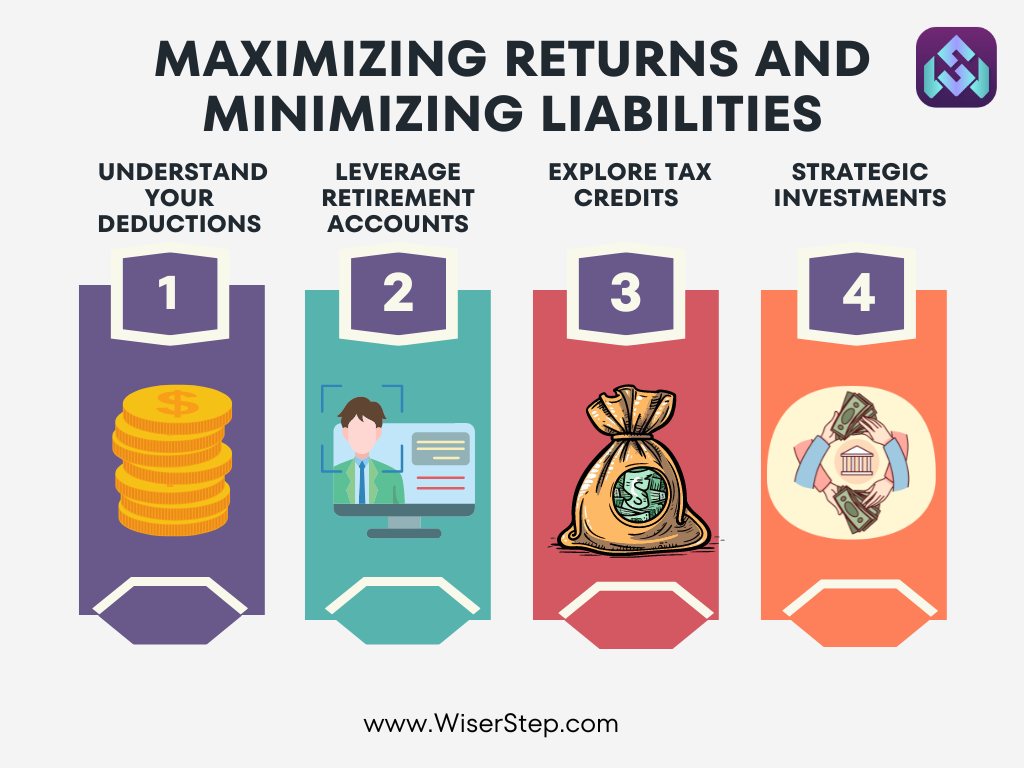Tax season can be a challenging period for many individuals, but with strategic planning and a proactive approach, it’s possible to optimize your financial situation. In this comprehensive guide, we’ll explore a variety of tax-saving tips that not only help in minimizing your tax liabilities but also contribute to maximizing your returns. By implementing these strategies, you can navigate the intricate landscape of tax regulations and keep more of your hard-earned money.
Understand Your Deductions
The first step in any effective tax-saving strategy is to understand the deductions available to you. Deductions are expenses that the government allows you to subtract from your taxable income, reducing the amount on which you are taxed. Common deductions include mortgage interest, student loan interest, medical expenses, and charitable contributions. Keep detailed records throughout the year to ensure you don’t miss out on any potential savings.
Leverage Retirement Accounts
Contributions to retirement accounts not only secure your financial future but also offer immediate tax benefits. Maximize your contributions to employer-sponsored plans. These contributions lower your taxable income, potentially placing you in a lower tax bracket. Take advantage of employer matches to boost your retirement savings while reducing your current tax liability.
Explore Tax Credits
Tax credits directly reduce the amount of tax you owe, providing a powerful way to cut your tax bill. Investigate credits available for education expenses, energy-efficient home improvements, and child care. The Child Tax Credit, Earned Income Tax Credit, and the American Opportunity Credit are examples of credits that can significantly impact your tax liability. Make sure you qualify for these credits and claim them to maximize your savings.
Embrace Strategic Investments
Investing with tax efficiency in mind can have a substantial impact on your overall tax picture. Consider holding investments for the long term to benefit from lower capital gains tax rates. Explore tax-efficient investment vehicles that generate fewer taxable events compared to actively managed funds. Strategic investment planning can lead to significant tax savings over time.
Take Advantage of Flexible Spending Accounts and Health Savings Accounts
If your employer offers FSAs or HSAs, take full advantage of these tax-advantaged accounts. Contributions to these accounts are made with pre-tax dollars, reducing your taxable income. FSAs can be used for qualified medical expenses, while HSAs provide a unique opportunity to save for medical expenses in retirement. Both options allow you to pay for eligible expenses with tax-free funds, providing substantial savings.
Keep an Eye on Tax Law Changes
Tax laws are subject to change, and staying informed about updates is crucial for effective tax planning. Consult with tax professionals or use reputable sources to stay abreast of any modifications to tax regulations that may impact your financial strategy. Being aware of changes allows you to adapt your approach and take advantage of new opportunities or adjust your financial planning accordingly.
Time Your Income and Deductions
Timing plays a crucial role in tax planning. Consider deferring income to a lower-tax year and accelerating deductions when you anticipate being in a higher tax bracket. Strategic timing can optimize your tax situation, allowing you to minimize your tax liability over time. This approach requires careful planning but can result in substantial savings.
Hire a Tax Professional
While many individuals choose to file their taxes independently, hiring a tax professional can uncover additional opportunities for savings. Tax professionals are well-versed in the intricacies of tax law and can provide personalized advice tailored to your specific situation. They can help identify deductions and credits you might have overlooked, ensuring you are making the most of available opportunities.
Navigating the complexities of the tax code can be a daunting task, but with these tax-saving tips, you can approach tax season with confidence and financial savvy. Remember, effective tax planning is a year-round effort. Stay informed, be proactive in exploring opportunities, and consider seeking professional advice to ensure you’re making the most of available strategies. By maximizing returns and minimizing tax liabilities, you can pave the way for a more financially secure future.

